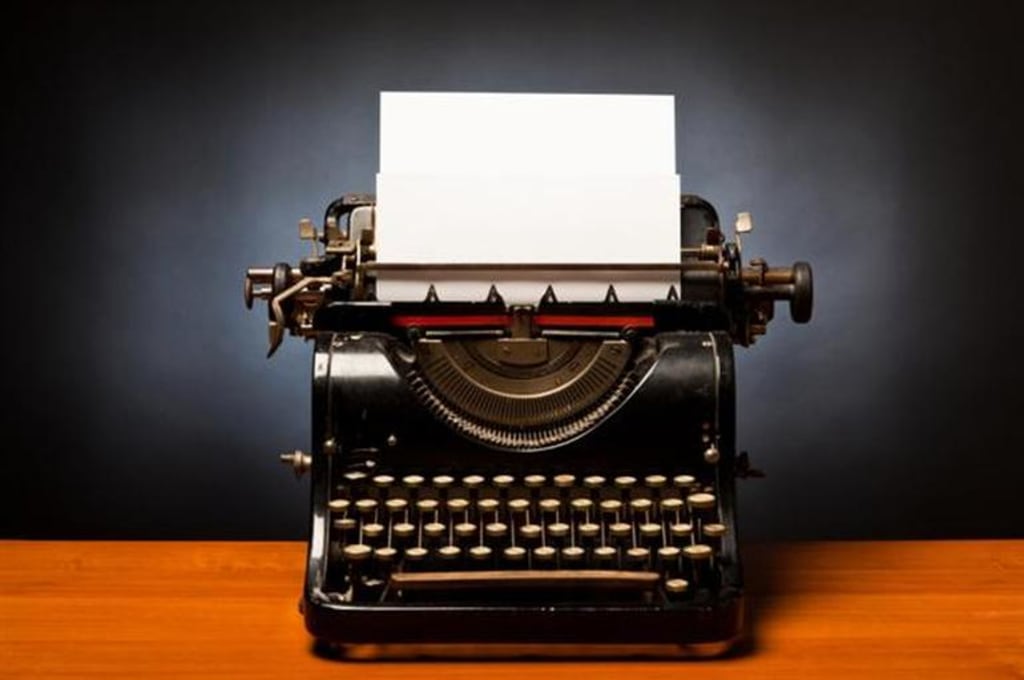The Essentials of Writing Great Fiction
5 Ways to Improve Your Creative Writing

Whether it's an epic full of dragons and knights or a romance full of steamy nights, creative writing is a cloud that surrounds even the smallest of places. It surrounds one in the library, or in the school. It may even surround one at home. The point is, creative writing is everywhere, and more and more people are starting to aspire to be authors.
These aspiring writers almost always have one goal in mind: publication. Writers want to finally, finally feel their story with their own two hands on their own pages printed with their own, inked words. Whether it's self-publication or traditional publication, authors want their work to circulate like money. The way to do that sounds simple, but in today's modern world of writing, it's one of the hardest things to do as an author. In fact, it's one of the reasons why so many young authors turn to online writing sites like Wattpad, Inkitt, or Storybird. The end goal is the publication of their work(s), but the first goal is recognition. As an aspiring author on multiple venues—from online to on paper—I'd like to share with you five tips in writing great fiction with that end goal of the process from recognition to publication.
#1: You Are the Creator of Your World
The very first thing you have to do in order to create a marvelous piece of fiction is to build your world. Even if you're writing realistic fiction in today's world, you have to get to know it. If you're writing historical fiction, you must research it to make it accurate! If you're making up a world, it's essential that you get yourself immersed in it. You also need to know your world before you know your characters. I say that because the culture of your world determines the ideologies and general personality of the people in your story. The government determines the everyday life of the people, and the economy determines the standard of living and how trade works. It's all a matter of thinking like the real world.
To help with this, think of your world like a character. Explore your world like you would a character. Dive into personalities for your world and it'll make your writing pop so much more. Writing with vivid worlds that are so well-thought-out makes its way to the top almost every time. It's very hard to think that way, but the planning of your world can be easily divided into three main categories: political, social, and economical. That is to say, the government, culture (think of prejudice, images, rituals, sayings, etc.), and money and trade.
Don't forget to make ends meet, too. Things in our world connect in so many different ways... in your world, things have to connect like that, too. You may want to consider technology, arts, entertainment, or more.
Remember that you should only plan the things that will affect the elements of your story. Don't waste your time!
A source that I found extremely helpful with world-building (and character building) was Notebook.ai. It's a great site that asks you so many questions about your world while keeping you organized at the same time. It makes you really think in-depth about your world. Check it out!
#2: You Are the Trigger to Your Characters
This is an extremely hard concept for young writers to grasp, but it's something that has helped me immensely on my own journey of writing. What I mean by you being the trigger is that you are the originator of your stories, the spark that starts it all, but the rest just goes on without you. The rest of your story should come as naturally as breathing. It's hard to get this down, but the main tool you can use is the extensive knowledge of your world and your characters.
Of course, you want several goals to accomplish in the plot that you'll hit with some work on your own, but I'm talking about the time-between-times, so to speak. You, the author, are the bit, rudder, and spark for your story. You spur it, steer it, and start it. The rest is up to the story. Let your characters roam free; let the people come to life before your very eyes!
Now, this is hard to explain if you don't already have it. Do you ever get it where you're trying to write, but you just start at the blank page or screen? When you master what I'm speaking of, you don't even have to think about the words that you're writing. They'll just naturally come out onto the page (or screen). I like to think that my story is playing out and I'm just recording what happens in an artistic way. Perhaps you like to think of it that way, too. However, the best thing about this type of writing is that sometimes it will reveal to you aspects of your story that you had never known before. Sometimes, it even steers you down a slightly different plotline than you had planned that is better than it was before. The risk with this is that you must maintain structure in your story. It's strange that writing must have structure but must go off and around in a creative design, almost like how a flower has a mathematical design but looks naturally beautiful to us in a random, creative way.
#3: You Are the Writer—Not the Editor
That is to say, don't be the editor just yet. If you do, you run the risk of putting your story on hold until it's "perfect" (newsflash: it will never be absolutely perfect in your eyes)! If you do, your story may never get finished. Don't edit yet while it's still a work in progress! There's a reason that your teachers have told you to finish writing your first draft of your essay before going back and editing.
Let me tell you from personal experience—editing totally makes your story slow to a painful stop. What happens is that you get so caught up in editing and making those parts perfect that you forget that you have to finish this story! You get so focused on how "bad" those first parts are that you forget that you have to finish the last parts! It's sad, really. It made one of my many stories skid to a halt after almost a year of writing its thirty-three chapters. Readers were wondering what happened to it and if I had put it aside. "Au contraire," I had said. "I'm working on it more than ever! You just haven't seen any of my micro-editing yet..."
You see the issue? Edit after you finish. Save yourself some time—and some cringing.
#4: You Are the Voice
Whatever words you write contain a bit of you in it. Don't be afraid to let that show more often. You may deny it, but it's true. All writing has voice in it. We put our experiences and emotions into our writing, whether we like it or not. That's why it's so hard to share writing sometimes—because it's basically like opening the gates to your deepest thoughts and desires.
Don't let that deter you from expressing these things. In fact, let that make you more confident. Through your writing, people can see you for you without looking through the lens of their bias of you. You make your writing great. Not even your characters, and not even your language. You do. Your voice is the one that is the constant in writing. Voice is the one thing that makes writing so personal, that makes it so relatable to others. Your voice is unique, something that no one has ever, ever read before. When you look and rely on other ideas for you to write, it takes away a bit of you from your writing. That makes it feel less personal to readers.
So find your voice! Find you!
#5: You Are the Artist
Something that I seem to always have to tell aspiring authors is to use your language! So many times, we're too caught up in the plot and the characters. Well...what about the writing itself? What about your piece of writing as a piece of literature rather than just a story? This makes writing great when you can morph your writing into true literature.
How does one do that? Practice. Read. Study. Writing actual literature takes your story up to the next level. It makes your piece of writing an art form at its purest base. When you can think and write thematically using literary devices and writing your story with language...that makes your story. It's hard to do and takes a lot of work to get down, but it's all about thinking deeper and taking things to a higher plane of skill.
I hope that these tips will help you. Some of them may seem confusing and it may seem like a lot of work just to create a story, but your writing should be more than just a story. It's a small piece of you and your art that you want to share with the world. It's important to make it the best you can. Whether you're writing historical, realistic, general, fantasy, thriller, mystery, paranormal, or any other type of fiction, these five things are things you should definitely be thinking about. Think about what you are as you're writing—you are the creator, the trigger, the voice, the writer, and the artist.
About the Creator
Brianna D
I've been an author of fiction for over ten years. My work is now all over the place, from online sites to paper! Now that I have experience, I'm ready to share all of my secrets with you. I write on anything, from writing to horse tips!
Enjoyed the story? Support the Creator.
Subscribe for free to receive all their stories in your feed. You could also pledge your support or give them a one-off tip, letting them know you appreciate their work.






Comments
There are no comments for this story
Be the first to respond and start the conversation.